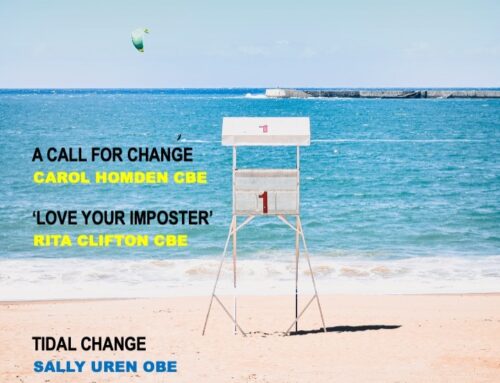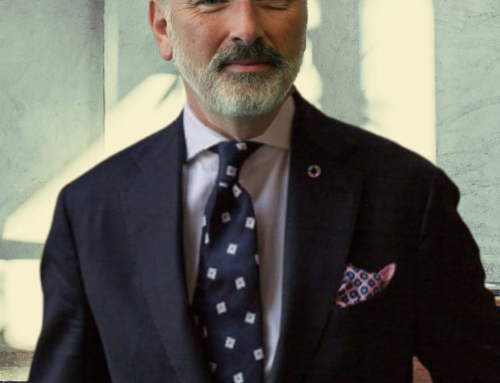Technology – Pandemic Panacea?

Although we are still forced to stay six feet apart, technology and human creativity are continuing to bring us together. These last few months have brought about an explosion of togetherness while apart, and a chance to explore and experiment with what really matters to us as human beings.
Zoom, which rocketed from 10 million daily participants in December last year to 300 million in April already feels like old, old news. In fact, I hear people saying they are “Zoomed out” and I fear that some of my friends are turning into Zoombies (if I may coin a term). Although at the beginning of the pandemic the media focused on our antisocial behaviour – think, panic buying and fights in supermarkets – a paper from the University of London’s School of Advanced Studies revealed that in a crisis like the current one, our stress response is to socialise more. Cindy Gallop, a celebrated thinker and founder of MakeLoveNotPorn, remarks that this is an incredible time for progressive social sex tech as people crave the genuine love, intimacy, and closeness which is not catered to by traditional players.
Augmented through technology, this new context is blurring what it means to be alone and together. ‘Silent calls’ are a good example. When working or studying, people are phoning friends merely to appreciate the background noise, filling the gap left by missing co-workers. This comes with the added bonus of choosing who you are sitting “next to” and can have a casual word with at the right moment.
Services like Zoom, Houseparty and many others have shown that socialising can flourish despite the lockdown. Ironically, by being physically confined we have been freed from our usual geographical restrictions. Last month to celebrate Shazam’s twentieth birthday, I planned a virtual party with former colleagues spanning from Singapore to San Francisco, an idea which would never have occurred to me pre-lockdown. My Chief of Staff Cormack tells me that he is mixing home friends with university friends over virtual drinks, gathering people from his village in Kent, in London and in Singapore, in a way that a traditional Friday night out could never be.
Colleagues and friends are routinely being invited into our kitchens, living rooms and even our bedrooms. As we can no longer ‘go out’ the party is being ‘brought in.’ In subtle ways, this change in communication dynamics alters what is possible by offering a gateway to higher levels of trust, which then leads to better business. If we become more comfortable letting people into intimate aspects of our lives and taking off the masks we wear externally, we will become more authentic, more genuine, and arguably more human. In doing so, we become more creative, since the crux of innovation is often about approaching a situation with a new perspective.
A few weeks ago, I commissioned an original piece of music for a video I produced. The artist I hired is passionate about music, with many years of experience, but this was his first professional composition. By trade he is a builder, but with his normal job on hold he turned his hobby into paid work. I hear similar stories from other creatives who are now turning their passion into paid work, and I hope that his career as a musician continues to build from this point.
Earlier this Spring, a rap artist called Swae Lee created the first ever Instagram live concert. This was complete with fake crowd surfing, a fan jumping on stage virtually, and an audience of 250,000 globally. More recently, a musician turned entrepreneur called Tim Exile launched Endlesss, a new collaborative music creation application (disclosure: I am an early investor). Tim’s mission is to democratise music production, encouraging those who may not have access to expensive equipment or years of training to find musical expression and creativity. Endlesss effectively connects high-level musical collaboration and game-style entertainment which has gained fantastic traction, perhaps because it launched in the middle of a pandemic.
Music captures our longing for togetherness, and I think this brings great comfort in times when we fear that the life which we know may be collapsing. One of the most Shazamed songs this year is Blinding Lights by The Weeknd whose opening lines are:
“Yeah
I been tryna call
I been on my own for long enough
Maybe you can show me how to love, maybe
I’m going through withdrawals…”
Rather than seek to turn on one another, we seek to connect. It’s not technology which is the panacea, it’s people.
A bit like a foxes’ wedding (when the sun shines while it rains), it feels like we are living the new and the old simultaneously. We are adapting to virtual guitar lessons, games of online Scrabble with elderly parents, or jumping on a Zoom call with friends while watching a football match played in an empty stadium. At the same time, we are appreciating the sunlight through the trees on a Tuesday morning, our neighbour’s cheery smile from across the street, or the sound of an old friend’s voice on the phone after many years. Once this pandemic passes, I hope we can savour both what is timelessly important to us from the past and how technology will undoubtedly enrich our future.
Technology is not the panacea, but fortunately the answer is in our hands. This is a special chance to ask ourselves: what is truly important and what do we really need? Who matters to us and what are the problems we want to try and solve? Whilst we are physically apart yet together through technology, let’s use it to see the best in those around us, our family, and especially our own self.
Dhiraj Mukherjee
Co-Founder of Shazam
https://dhirajmukherjee.com/
Twitter: @dhirajm

Technology – Pandemic Panacea?

Although we are still forced to stay six feet apart, technology and human creativity are continuing to bring us together. These last few months have brought about an explosion of togetherness while apart, and a chance to explore and experiment with what really matters to us as human beings.
Zoom, which rocketed from 10 million daily participants in December last year to 300 million in April already feels like old, old news. In fact, I hear people saying they are “Zoomed out” and I fear that some of my friends are turning into Zoombies (if I may coin a term). Although at the beginning of the pandemic the media focused on our antisocial behaviour – think, panic buying and fights in supermarkets – a paper from the University of London’s School of Advanced Studies revealed that in a crisis like the current one, our stress response is to socialise more. Cindy Gallop, a celebrated thinker and founder of MakeLoveNotPorn, remarks that this is an incredible time for progressive social sex tech as people crave the genuine love, intimacy, and closeness which is not catered to by traditional players.
Augmented through technology, this new context is blurring what it means to be alone and together. ‘Silent calls’ are a good example. When working or studying, people are phoning friends merely to appreciate the background noise, filling the gap left by missing co-workers. This comes with the added bonus of choosing who you are sitting “next to” and can have a casual word with at the right moment.
Services like Zoom, Houseparty and many others have shown that socialising can flourish despite the lockdown. Ironically, by being physically confined we have been freed from our usual geographical restrictions. Last month to celebrate Shazam’s twentieth birthday, I planned a virtual party with former colleagues spanning from Singapore to San Francisco, an idea which would never have occurred to me pre-lockdown. My Chief of Staff Cormack tells me that he is mixing home friends with university friends over virtual drinks, gathering people from his village in Kent, in London and in Singapore, in a way that a traditional Friday night out could never be.
Colleagues and friends are routinely being invited into our kitchens, living rooms and even our bedrooms. As we can no longer ‘go out’ the party is being ‘brought in.’ In subtle ways, this change in communication dynamics alters what is possible by offering a gateway to higher levels of trust, which then leads to better business. If we become more comfortable letting people into intimate aspects of our lives and taking off the masks we wear externally, we will become more authentic, more genuine, and arguably more human. In doing so, we become more creative, since the crux of innovation is often about approaching a situation with a new perspective.
A few weeks ago, I commissioned an original piece of music for a video I produced. The artist I hired is passionate about music, with many years of experience, but this was his first professional composition. By trade he is a builder, but with his normal job on hold he turned his hobby into paid work. I hear similar stories from other creatives who are now turning their passion into paid work, and I hope that his career as a musician continues to build from this point.
Earlier this Spring, a rap artist called Swae Lee created the first ever Instagram live concert. This was complete with fake crowd surfing, a fan jumping on stage virtually, and an audience of 250,000 globally. More recently, a musician turned entrepreneur called Tim Exile launched Endlesss, a new collaborative music creation application (disclosure: I am an early investor). Tim’s mission is to democratise music production, encouraging those who may not have access to expensive equipment or years of training to find musical expression and creativity. Endlesss effectively connects high-level musical collaboration and game-style entertainment which has gained fantastic traction, perhaps because it launched in the middle of a pandemic.
Music captures our longing for togetherness, and I think this brings great comfort in times when we fear that the life which we know may be collapsing. One of the most Shazamed songs this year is Blinding Lights by The Weeknd whose opening lines are:
“Yeah
I been tryna call
I been on my own for long enough
Maybe you can show me how to love, maybe
I’m going through withdrawals…”
Rather than seek to turn on one another, we seek to connect. It’s not technology which is the panacea, it’s people.
A bit like a foxes’ wedding (when the sun shines while it rains), it feels like we are living the new and the old simultaneously. We are adapting to virtual guitar lessons, games of online Scrabble with elderly parents, or jumping on a Zoom call with friends while watching a football match played in an empty stadium. At the same time, we are appreciating the sunlight through the trees on a Tuesday morning, our neighbour’s cheery smile from across the street, or the sound of an old friend’s voice on the phone after many years. Once this pandemic passes, I hope we can savour both what is timelessly important to us from the past and how technology will undoubtedly enrich our future.
Technology is not the panacea, but fortunately the answer is in our hands. This is a special chance to ask ourselves: what is truly important and what do we really need? Who matters to us and what are the problems we want to try and solve? Whilst we are physically apart yet together through technology, let’s use it to see the best in those around us, our family, and especially our own self.
Dhiraj Mukherjee
Co-Founder of Shazam
https://dhirajmukherjee.com/
Twitter: @dhirajm




